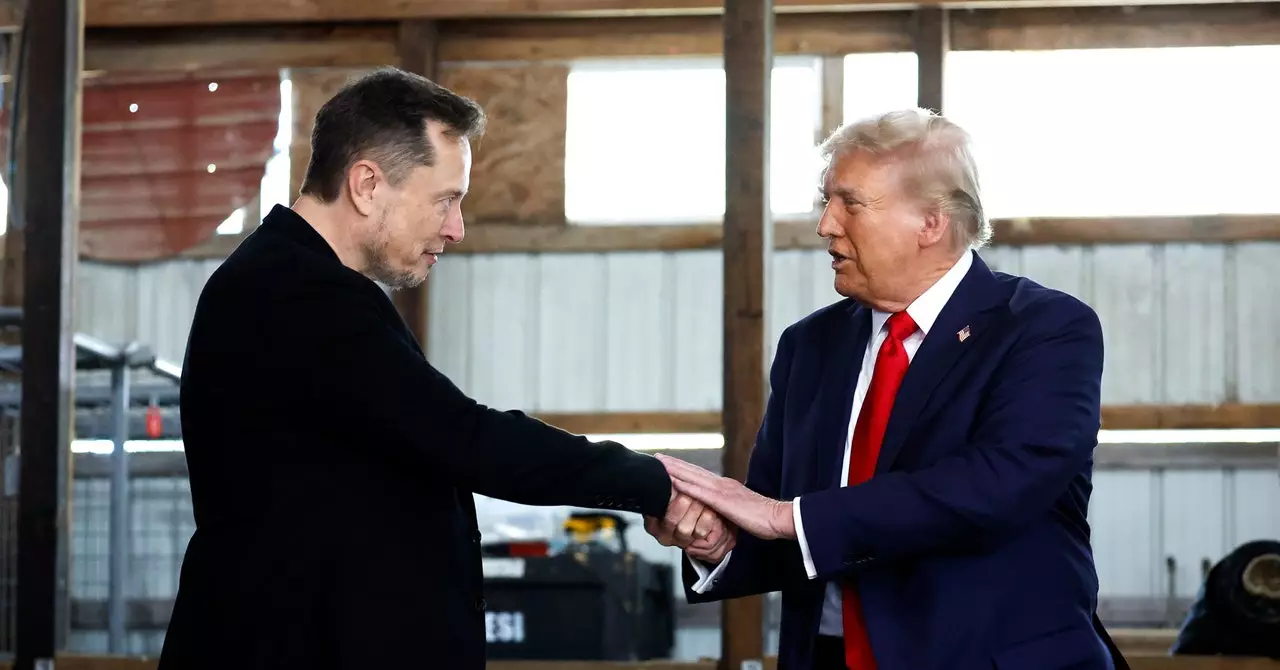Eight years ago, the United States experienced an electoral upheaval that struck many as unforeseen, leading to considerable emotional turmoil within various sectors, including technology journalism. The staff at Backchannel, a small yet passionate publication dedicated to covering tech innovations, faced a moment of reckoning. In the wake of this seismic political event, one of the editors voiced a sentiment that resonated deeply: focusing on technology felt out of touch, perhaps even trivial. Yet, amid the chaos, one underlying truth became apparent—the continuous and profound evolution brought by technology remained paramount. This realization framed my response, as I crafted a piece underscoring the importance of the ongoing technological revolution—arguing that while political dynamics ebb and flow, the trajectory of technology would leave an indelible mark on humanity.
Fast forward to the present, and we find ourselves once again in the throes of an electoral surprise that has left the nation—its citizens and commentators—grappling with the implications. Despite the political controversies and a trail of scoff-worthy disqualifiers that could have derailed a traditional candidate, the resilience of certain populist sentiments has triumphed again. The implications of this revival in politics cannot be understated; the upcoming years promise to be transformative, but the highway to historical significance is fraught with uncertainty—particularly for a nation on the brink of celebrating its 250th anniversary.
As we dissect the present circumstances and reflect on the past, it’s crucial to recognize that the essence of human nature tends to remain unwavering, while technology relentlessly progresses. As the famed futurist Stewart Brand articulated, it is scientific advancement and its aftermath that ultimately reshape the world. This moment in our history will be remembered not just for political figures but for the technological strides that concurrently redefine what it means to be human. In centuries to come, historians and scholars will look back at this period with the understanding that it was the maturation of microchips and advanced algorithms that heralded an era of irreversible change.
Now that the spotlight is back on Trump, it’s abundantly clear that political reporting plays a critical role, especially now that accountability measures are essential. However, if we analyze the impact of technology in comparison to that of any political figure—even one as polarizing as Trump—we must recognize that the repercussions of tech advancements will ripple through our society in ways that political events cannot entirely encapsulate. Disruptions caused by healthcare policies, individual rights, or immigration standards wield immediate influence over daily lives, arguably overshadowing the theoretical inquiries surrounding advancements in artificial intelligence or mixed realities.
Journalists are tasked with the dual responsibility of critiquing political decisions while covering technological shifts that may significantly shape future governance. Presently, a heated conversation is brewing surrounding AI regulation. Concerns arise regarding the potential for a new administration to unravel regulatory frameworks initiated by predecessors, particularly under Biden’s administration. Comparisons are drawn to Trump’s close ties to influential figures like Elon Musk, whose ventures aim to integrate AI across multiple industries, raising eyebrows concerning potential conflicts of interest in policy-making processes.
Moreover, the prospective shifts in the government’s posture towards AI regulation could gravely impact the direction of technological development in the United States, especially in the context of competing global powers. China’s aggressive approach to AI presents a challenge that demands attention; the definition and constraints placed on AI technologies will shape whether our innovations culminate in growth or degradation.
Consequently, amid all this political fervor, there remains an urgency to engage with our technological environment. The day following the recent election results, I sought out an interview at a dynamic AI firm, where insightful discussions underscored the possibilities and limitations of our current tech landscape. While the weight of the election results lingered heavily on my mind, it reaffirmed an unwavering commitment to the narratives emerging from the tech sector. Writing about technology, regardless of the political climate, is still an imperative duty, as innovations—especially in AI—hold the larger story at heart.
This continued exploration of AI and its ramifications on society is more than mere reporting; it is an essential pursuit that encapsulates the essence of our ongoing technological narrative. As we witness political shifts and grappling ideologies, we must not lose sight of the profound transformations occurring in science and technology. The commentaries on artificial intelligence, machine learning, and related innovations constitute the cutting edge of our human experience—one that demands to be chronicled with careful scrutiny amid the swirling currents of political discord.
As journalists and observers of the technological realm, our responsibility is to navigate these waters astutely. The biggest story, as I assert once again, lies in the evolution of technology itself—a story that will continue to unfold, irrespective of the individuals currently wielding political power.

